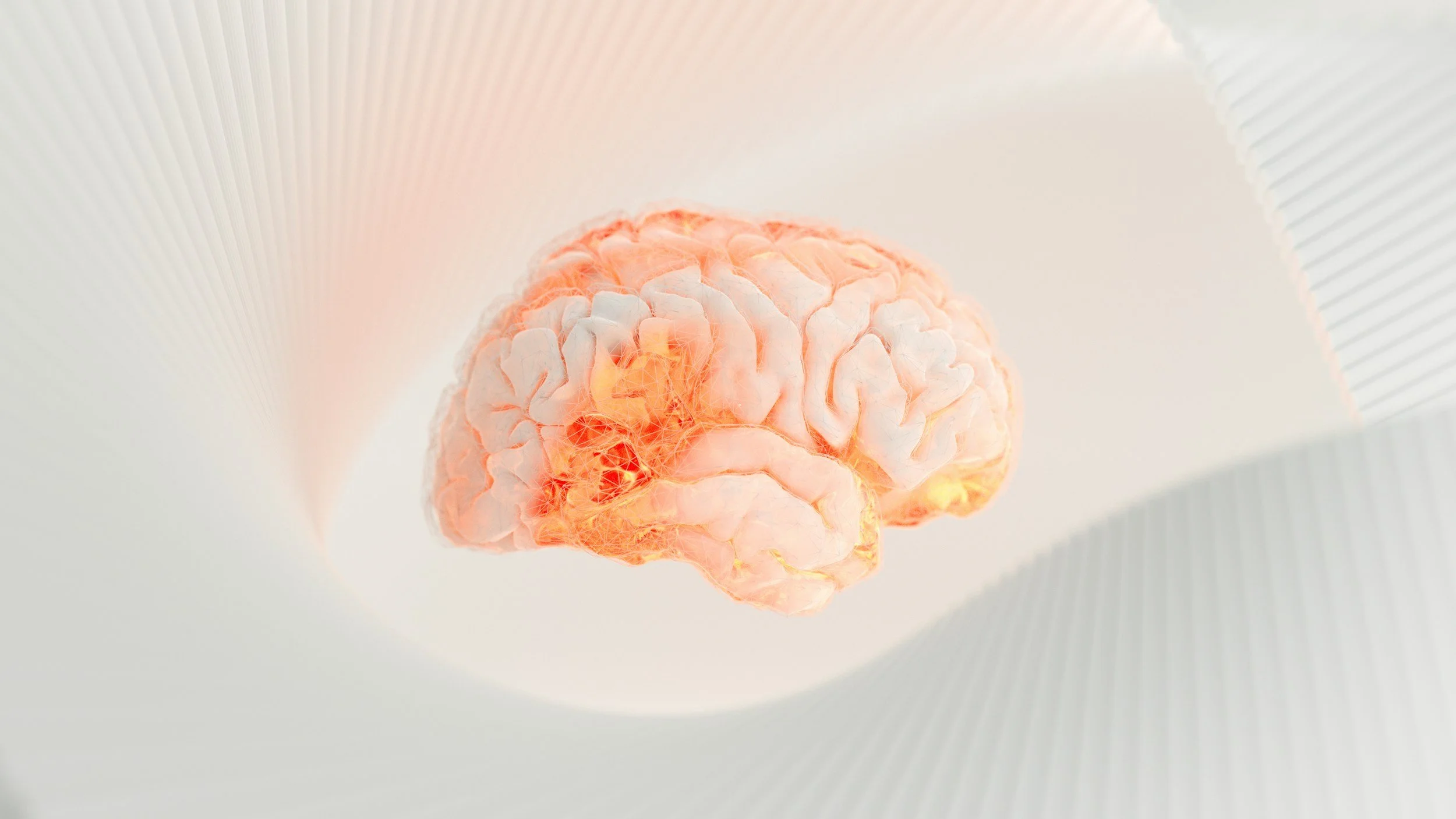How Alcohol Affects the Brain and Central Nervous System
Alcohol is a commonly consumed substance worldwide, and its effects on the brain and central nervous system (CNS) can be both short-term and long-term. While moderate drinking may not have significant harmful effects, excessive and prolonged alcohol consumption can lead to serious disruptions in the brain's functioning, affecting everything from cognitive abilities to emotional regulation. The central nervous system, which includes the brain and spinal cord, is particularly sensitive to alcohol, and even small amounts can impair its functions. Understanding how alcohol impacts the brain and CNS can help individuals make informed decisions about their drinking habits and recognise the signs of alcohol-related damage.
How Alcohol Affects the Central Nervous System
Alcohol is a depressant, meaning it slows down the functions of the central nervous system (CNS). When consumed, alcohol enters the bloodstream and affects the brain's neurotransmitters, the chemicals responsible for transmitting signals between nerve cells. The primary neurotransmitter affected by alcohol is gamma-aminobutyric acid (GABA), which inhibits brain activity, and alcohol increases GABA’s effects, leading to relaxation, drowsiness, and impaired motor skills. Alcohol also inhibits the release of glutamate, an excitatory neurotransmitter, further slowing down brain activity. This combination results in the characteristic effects of alcohol, such as impaired judgment, coordination, and cognitive function.
In the short term, alcohol can produce feelings of euphoria, relaxation, and lowered inhibitions. However, as blood alcohol content (BAC) increases, these effects intensify, leading to confusion, dizziness, and loss of coordination. In severe cases, alcohol poisoning can occur, which is potentially life-threatening due to the depressant effects on the respiratory system.
Effects of Alcohol on the Brain
The brain is highly sensitive to alcohol, and its effects are noticeable even with moderate consumption. Alcohol impairs several key brain functions, including memory, decision-making, and motor control. It affects the frontal lobe, the part of the brain responsible for decision-making, problem-solving, and emotional regulation. This is why alcohol consumption can lead to risky behaviour, poor judgment, and impulsive decisions.
Alcohol also disrupts the hippocampus, which is responsible for forming and storing memories. This can lead to blackouts or memory lapses, where individuals cannot remember events that occurred while intoxicated. Chronic alcohol abuse can cause more permanent damage to the hippocampus, leading to long-term memory problems and difficulty learning new information.
The cerebellum, which controls motor skills and coordination, is another part of the brain affected by alcohol. This is why alcohol impairs coordination, making activities such as walking or driving dangerous when under the influence. In high doses, alcohol can lead to severe motor impairments and unsteady movements, increasing the risk of accidents and injuries.
What Does Alcohol Do to the Brain?
When alcohol enters the bloodstream, it travels to the brain, where it has a depressant effect on the CNS. This depressant action affects several neurotransmitters, including GABA and glutamate, which regulate the brain’s activity. By enhancing the effects of GABA and inhibiting glutamate, alcohol causes a slowdown in the brain's functions, resulting in sedation, impaired judgment, and lack of coordination.
As the alcohol level in the blood increases, so do the effects on the brain. At higher levels, alcohol can cause confusion, disorientation, and memory blackouts. In extreme cases, it can lead to unconsciousness or alcohol poisoning. Over time, with chronic use, the brain becomes tolerant to alcohol, meaning that higher amounts are required to achieve the same effects, which can increase the risk of addiction and long-term damage.
Alcohol also disrupts the brain’s reward system, specifically the dopamine system. Dopamine is a neurotransmitter that plays a role in pleasure and reward. When alcohol is consumed, it stimulates the release of dopamine, leading to feelings of euphoria. However, repeated alcohol consumption can damage this reward system, leading to a cycle of craving and dependence. This is one of the key factors that contribute to alcohol addiction.
Long-Term Effects of Alcohol on the Brain
Chronic alcohol abuse can lead to serious, long-term effects on the brain. One of the most significant effects is the damage to the hippocampus, which can result in permanent memory loss and difficulty learning new information. Long-term alcohol abuse can also cause changes in the structure and function of the frontal lobe, which can impair decision-making, planning, and emotional regulation.
Another long-term effect of alcohol on the brain is brain shrinkage. Chronic alcohol consumption can lead to the loss of brain cells, particularly in the frontal cortex, which is responsible for higher cognitive functions. This can lead to cognitive deficits, including difficulty concentrating, memory, and problem-solving. In some cases, alcohol-related brain damage can result in conditions like Wernicke-Korsakoff syndrome, a serious disorder characterised by confusion, memory loss, and difficulty with motor coordination.
Alcohol abuse can also increase the risk of developing mental health disorders, such as depression and anxiety. The long-term effects of alcohol on the brain’s reward system can lead to changes in mood and behaviour, contributing to the development of these conditions. Additionally, chronic alcohol consumption can cause sleep disturbances, further exacerbating mental health problems.
Effects of Alcohol on the Central Nervous System
The central nervous system (CNS) plays a critical role in controlling and coordinating bodily functions, and alcohol’s effects on the CNS can be profound. In the short term, alcohol can cause drowsiness, relaxation, and a sense of euphoria by slowing down the CNS. However, excessive consumption of alcohol can lead to more severe effects, including respiratory depression, which can be life-threatening.
Chronic alcohol use can lead to lasting damage to the CNS, including nerve cell death and disruptions in neurotransmitter function. This can result in long-term cognitive deficits, motor impairments, and emotional instability. Alcohol can also increase the risk of developing neurological disorders, such as peripheral neuropathy, which involves damage to the peripheral nerves, causing symptoms like tingling, numbness, and pain in the extremities.
Luxury Treatment for Alcohol-Related Brain and Central Nervous System Damage
Luxury treatment for alcohol-related brain and CNS damage focuses on providing a high level of care in a supportive, private environment. These facilities offer a holistic approach to recovery, addressing not only the physical aspects of alcohol abuse but also the emotional, psychological, and social challenges that accompany it. Luxury treatment centres offer a range of therapies designed to help individuals recover from alcohol-related damage to the brain and central nervous system.
Personalised Treatment Plans: Luxury rehab centres offer individualised treatment plans that cater to each patient's unique needs. These plans may include a combination of cognitive-behavioral therapy, psychotherapy, and neurofeedback, which help address cognitive impairments caused by alcohol abuse.
Neurotherapy and Cognitive Rehabilitation: Many luxury treatment centres use advanced therapies, such as Neurotherapy and cognitive rehabilitation, to help individuals recover cognitive functions affected by alcohol use. These therapies aim to retrain the brain and improve memory, attention, and decision-making skills.
Holistic Therapies: Besides traditional therapies, luxury treatment centres often incorporate holistic approaches such as yoga, meditation, and acupuncture to promote relaxation and reduce stress. These therapies can help individuals with alcohol-related brain damage restore balance to their emotional and mental well-being.
Expert Care: Luxury rehab centres employ highly qualified professionals, including neurologists, psychiatrists, and addiction specialists, who work together to develop a comprehensive treatment plan tailored to the individual’s needs.
Family Support Programs: Family therapy and support groups are also commonly included in luxury treatment programs to help family members understand the effects of alcohol on the brain and CNS and provide emotional support during the recovery process.
Conclusion
Alcohol’s impact on the brain and central nervous system is profound and can lead to both short-term impairments and long-lasting damage. In the short term, alcohol affects cognitive functions such as judgment, memory, and motor control. With chronic use, alcohol can cause significant damage to the brain, leading to memory problems, cognitive deficits, and increased susceptibility to mental health disorders. However, with early intervention and comprehensive treatment, including luxury rehabilitation programs, individuals can recover from alcohol’s effects and improve their quality of life.
Q&A
Q1: How does alcohol affect the brain and central nervous system?
Alcohol is a depressant that affects the brain and central nervous system by slowing down nerve cell activity. It enhances the effects of GABA, which inhibits brain activity and suppresses glutamate, which excites brain activity. This leads to sedation, impaired judgment, and lack of coordination. In high doses, alcohol can lead to confusion, memory loss, and even unconsciousness. Long-term alcohol use can cause brain shrinkage, cognitive impairments, and changes in mood and behaviour.
Q2: What does alcohol do to the brain?
When alcohol is consumed, it enters the bloodstream and affects neurotransmitters in the brain. Alcohol enhances the effects of GABA, leading to relaxation and drowsiness, and inhibits glutamate, slowing down brain activity. This causes impaired decision-making, motor control, and memory. Over time, excessive alcohol consumption can lead to permanent damage to brain structures, including the hippocampus and frontal lobe, leading to memory loss, difficulty with learning, and emotional regulation issues.
Q3: What are the long-term effects of alcohol on the brain?
Long-term alcohol abuse can cause significant damage to the brain, including brain shrinkage, cognitive deficits, and memory problems. Chronic alcohol consumption can impair the hippocampus, leading to difficulties in forming and storing new memories. It can also damage the frontal lobe, affecting decision-making and emotional regulation. Over time, alcohol abuse increases the risk of developing neurological disorders, such as Wernicke-Korsakoff syndrome, and can also contribute to mental health conditions like depression and anxiety.
Q4: How does alcohol affect the central nervous system in the long term?
Chronic alcohol abuse can lead to lasting damage to the central nervous system (CNS). It can cause nerve cell death, leading to cognitive impairments, motor coordination issues, and emotional instability. Alcohol can also increase the risk of neurological disorders, such as peripheral neuropathy, which causes symptoms like tingling, numbness, and pain in the extremities. The long-term effects of alcohol on the CNS can significantly impact a person's quality of life and overall health.
Q5: What is luxury treatment for alcohol-related brain damage?
Luxury treatment for alcohol-related brain damage focuses on providing personalised care in a comfortable, private environment. These centres offer advanced therapies such as cognitive rehabilitation and neurofeedback, as well as holistic approaches like yoga and meditation. Luxury rehab centres also provide expert care from neurologists, psychiatrists, and addiction specialists who work together to help individuals recover from alcohol-related brain damage. Family therapy and support programs are often included to help loved ones understand and support the recovery process.


